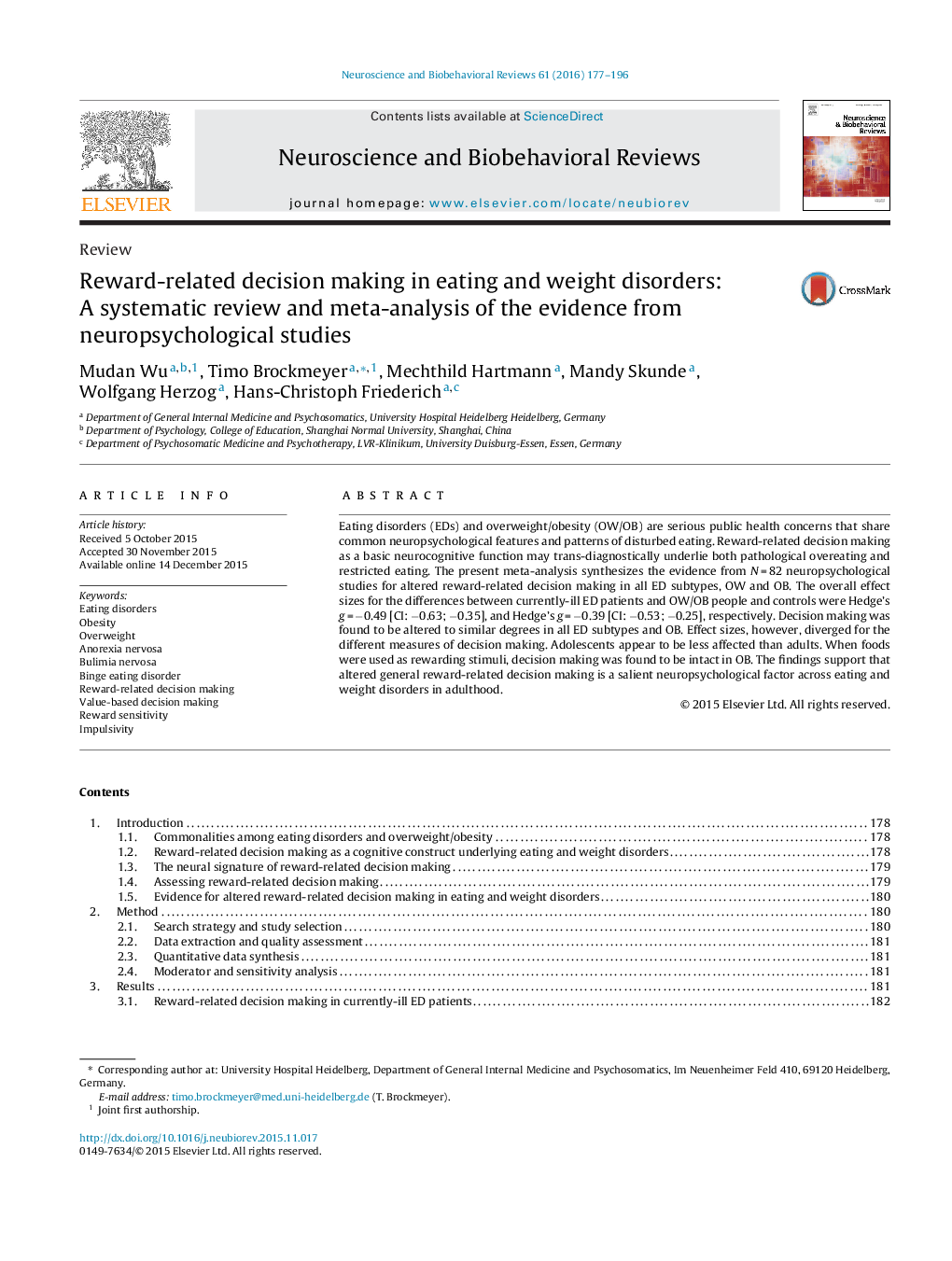| Article ID | Journal | Published Year | Pages | File Type |
|---|---|---|---|---|
| 937421 | Neuroscience & Biobehavioral Reviews | 2016 | 20 Pages |
•Reward-related decision making (RRDM) may represent a neurocognitive factor underlying altered eating behavior.•RRDM is considered to contribute to both excessive overeating and excessive control over food intake.•The meta-analysis synthesizes the evidence from N = 82 original neuropsychological studies.•Similar levels of poor RRDM were found trans-diagnostically in all eating disorder subtypes and in obesity.•Findings diverged depending on the measures of RRDM, the type of reward stimulus, and the age of participants.
Eating disorders (EDs) and overweight/obesity (OW/OB) are serious public health concerns that share common neuropsychological features and patterns of disturbed eating. Reward-related decision making as a basic neurocognitive function may trans-diagnostically underlie both pathological overeating and restricted eating. The present meta-analysis synthesizes the evidence from N = 82 neuropsychological studies for altered reward-related decision making in all ED subtypes, OW and OB. The overall effect sizes for the differences between currently-ill ED patients and OW/OB people and controls were Hedge's g = −0.49 [CI: −0.63; −0.35], and Hedge's g = −0.39 [CI: −0.53; −0.25], respectively. Decision making was found to be altered to similar degrees in all ED subtypes and OB. Effect sizes, however, diverged for the different measures of decision making. Adolescents appear to be less affected than adults. When foods were used as rewarding stimuli, decision making was found to be intact in OB. The findings support that altered general reward-related decision making is a salient neuropsychological factor across eating and weight disorders in adulthood.
